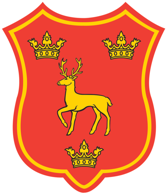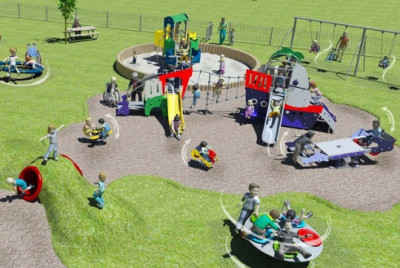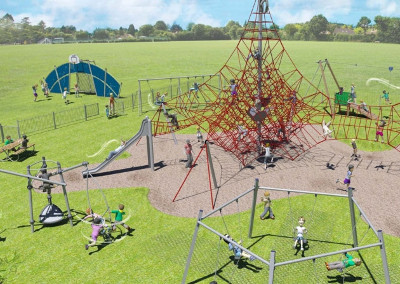
Dereham Town Councillor
From 'trouble' to Town Mayor
Previously I stood as a 'paper'This is a concept where a candidate name appears on a ballot paper but they don't expect to win and don't do much by way of campaigning.The idea is to test what voters want and give people an opportunity to vote Green. If popular, other parties may change policies to 'chase the vote' and next time a full campaigning candidate might stand.
candidate.
 In 2003 I stood in Dereham-Toftwood with a serious if low key campaign.
I leafleted the ward but when the results came in I lost by just a
handful of votes.
In 2003 I stood in Dereham-Toftwood with a serious if low key campaign.
I leafleted the ward but when the results came in I lost by just a
handful of votes.In 2007, I tried again and this time was successful and joined Ann Bowyer on the Town Council as a 'Green'.
Recalling the history of Dereham's politicised council and the fights between Labour and Conservative on party lines is was not surprising that having a third party in the mix was seen as trouble. For the most part Councillors were doing what they believed was best for Dereham, but sometimes national party ideology got in the way.
Despite being very much in the minority, so no threat to the status quo, there was initially a lot of resistance to Green Councillors. It was suggested to me that the best way to get anything considered would be to propose the exact opposite of what I really thought! Ever so slowly there has been a change in way the Town Council works: by making moderate suggestions based on research, facts backed by evidence we have been able to agree and do much by consensus.
In 2011, I was re-elected to the Town Council and elected as chairman of the Finance & Governance Committee. While I was delighted to be given the role, there was a sting in the tail because the Town Council was inadequately funded for all the extra responsibilities it had inherited, or was about to take on, from Breckland District Council.
 Realistically, the only option was to increase the precept to cover the
shortfall. This was a major 'ask' when Tories at Breckland Council were
making a big thing of zero tax increases and almost every statement was
preceded by "cheapest council tax in the country". However, the way
Breckland was able to be "the cheapest" was by providing a minimal
service and offloading costs to Town and Parish Councils. A couple of
examples:
Realistically, the only option was to increase the precept to cover the
shortfall. This was a major 'ask' when Tories at Breckland Council were
making a big thing of zero tax increases and almost every statement was
preceded by "cheapest council tax in the country". However, the way
Breckland was able to be "the cheapest" was by providing a minimal
service and offloading costs to Town and Parish Councils. A couple of
examples:
- 'Democratic Services' at Breckland run elections, but now charge the Town for the privilege. Not particularly democratic because now there is an incentive NOT to have an election in order to reduce costs. Is it any wonder there were so many uncontested elections this time?
- The emptying of dog bins used to be a district wide contract, but now the Town is being charged for some bins at double the market rate (compared with other districts) for the service. We could do it ourselves, but because it requires special handling and a waste licence the overhead cost makes it very cost inefficient in small numbers - thanks Breckland you just increased the cost to tax payers for zero gain!
At this point I must recognise those enlightened Conservative members of the Town Council who fully supported a tax increase. After all it was pointless to take over play areas which were falling into ruin and then allow them to degenerate further, but that is what would happen without funding. Clearly the Tory members on the Town Council (many of whom were 'twin-hatters' and members of Breckland too) could not push this through themselves but the majority were supportive. It was agreed to raise the Dereham precept by a few pounds a year for a number of years using the principle:
'Money raised in Dereham would be spent in Dereham'.
Then came a threat from central government to restrict Town and Parish Council precept increases. This meant that to avoid the danger of not being able to deliver the promised projects we would have to impose the whole precept rise in one go. As chairman of the Finance Committee it was my job to sell this plan. Actually, it was not too difficult, we had a good example of the benefit of spending public money in the newly refurbished Memorial Hall and we had plans for new equipment on the play areas. The benefits were obvious and believable - the tax rise went through with almost no objections.
There has been a strange backlash from this: apparently the Tory traditionalists at Breckland were exceptionally annoyed that tax increase had gone through without significant public discontent. I understand this has caused some friction between Tories in the two councils, which is a pity because we are all supposed to be working together for the benefit of Dereham and the wider district.
 We now had to prove our worth and deliver improvements. When some land
became available for additional open space we took the opportunity in
the knowledge that it could be well used. The toilets were refurbished
to a very high standard. Fantastic new play equipment was installed at
Moorgate; Neatherd play area is already budgeted and signed off. Other
areas will follow in due course, but funding is still limited so
improvements will have to be staged over years. The Town council has
worked in partnership with community groups like the Friends of Dereham
Windmill to deliver an excellent community resource. Most of the funding
came from grants and other charitable sources, but only after the Town
Council 'pump primed' the process with Dereham money thus underwriting
the project. Space for our new cemetery has been acquired thanks to a
loan from the 'public works loan board', another very sensible funding
method with low and fixed interest rates used to purchase a resource
which will be needed for centuries to come. This is another example of
where maths has trumped the dominant ideology that public borrowing is
bad.
We now had to prove our worth and deliver improvements. When some land
became available for additional open space we took the opportunity in
the knowledge that it could be well used. The toilets were refurbished
to a very high standard. Fantastic new play equipment was installed at
Moorgate; Neatherd play area is already budgeted and signed off. Other
areas will follow in due course, but funding is still limited so
improvements will have to be staged over years. The Town council has
worked in partnership with community groups like the Friends of Dereham
Windmill to deliver an excellent community resource. Most of the funding
came from grants and other charitable sources, but only after the Town
Council 'pump primed' the process with Dereham money thus underwriting
the project. Space for our new cemetery has been acquired thanks to a
loan from the 'public works loan board', another very sensible funding
method with low and fixed interest rates used to purchase a resource
which will be needed for centuries to come. This is another example of
where maths has trumped the dominant ideology that public borrowing is
bad.We have achieved a great deal through collaboration and decision making based on the open consideration of facts, long may it continue. Then in May 2014, councillors elected me to serve as Town Mayor. From 'trouble' to Town Mayor in eight years.



